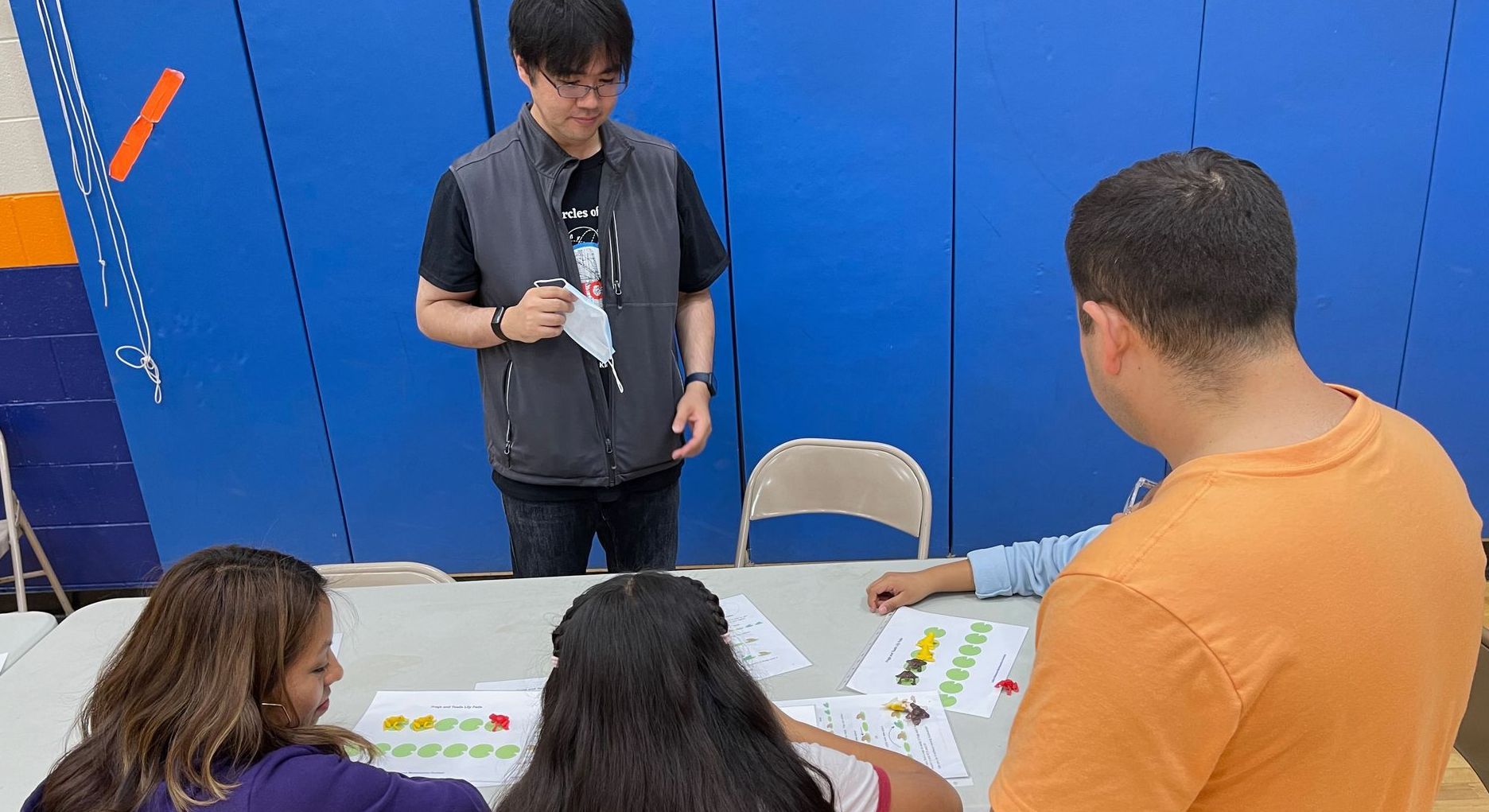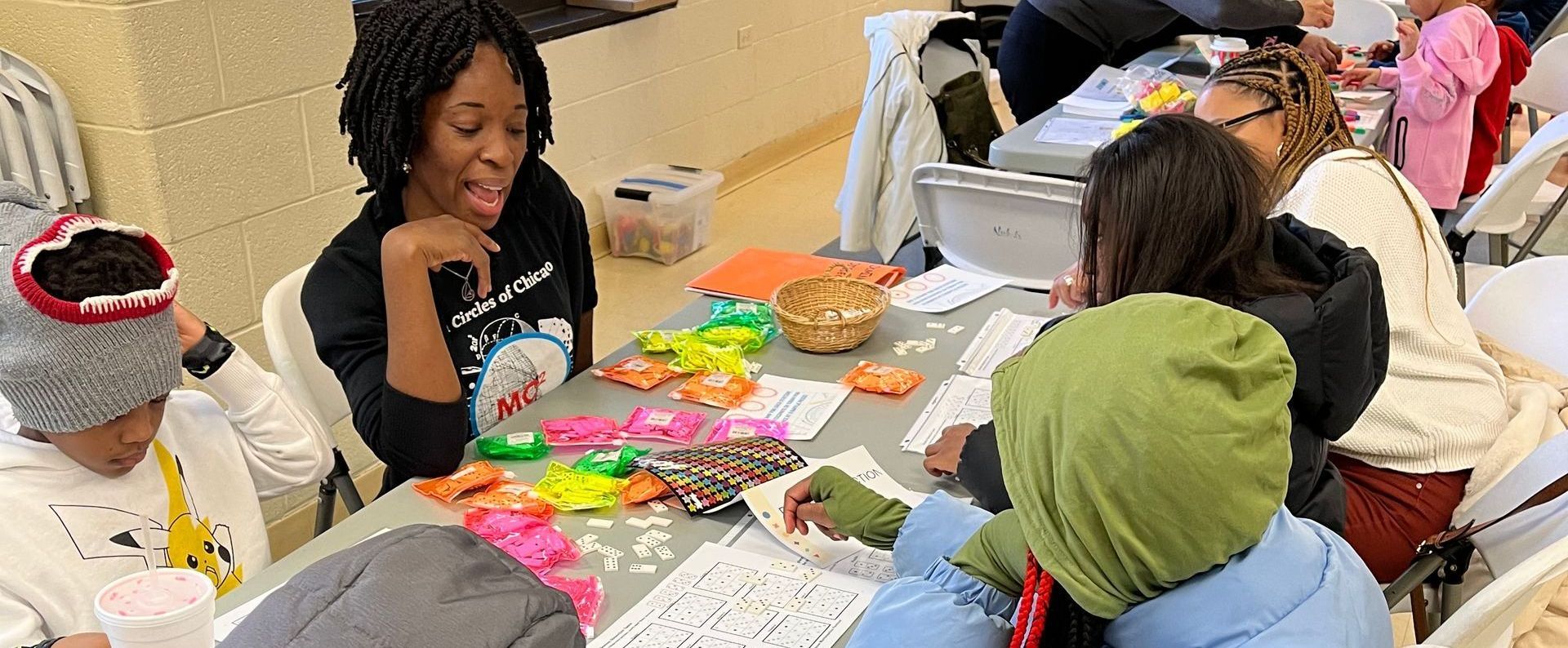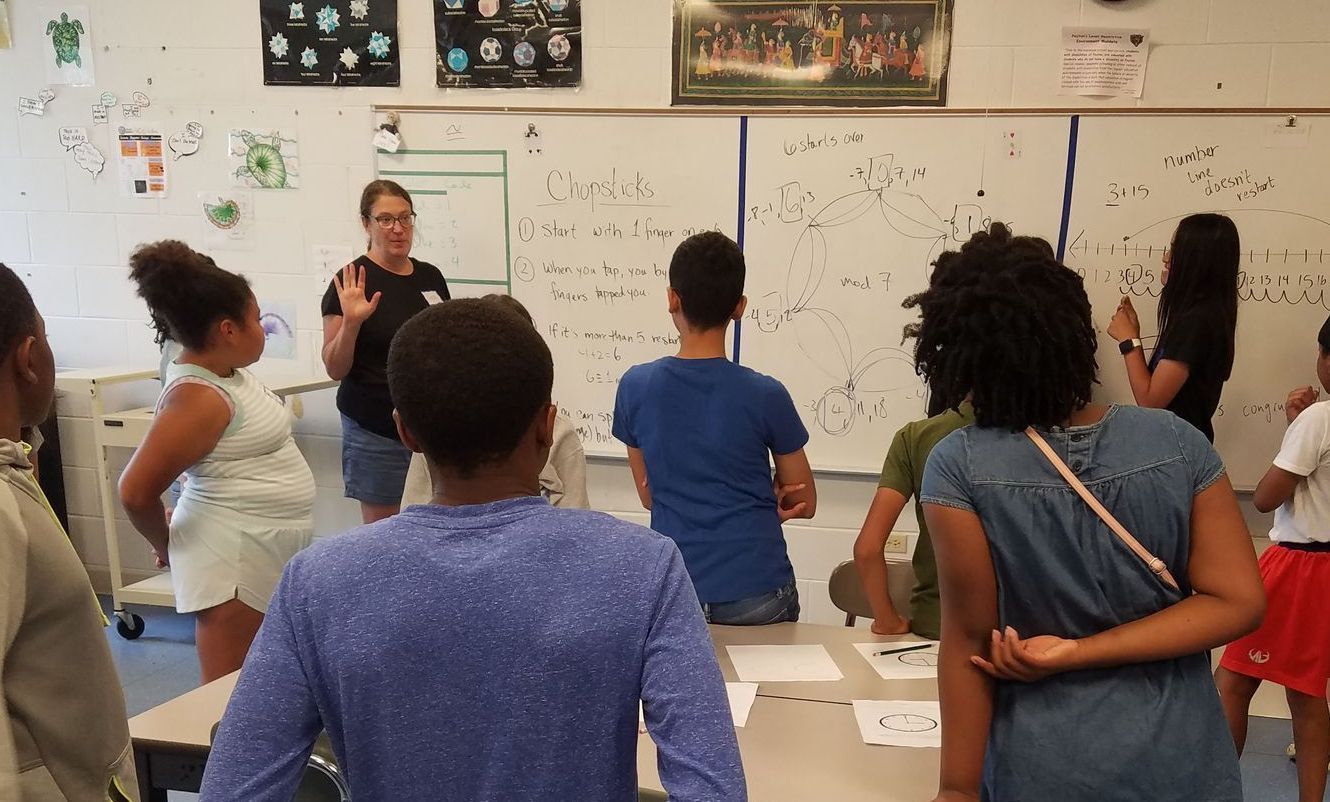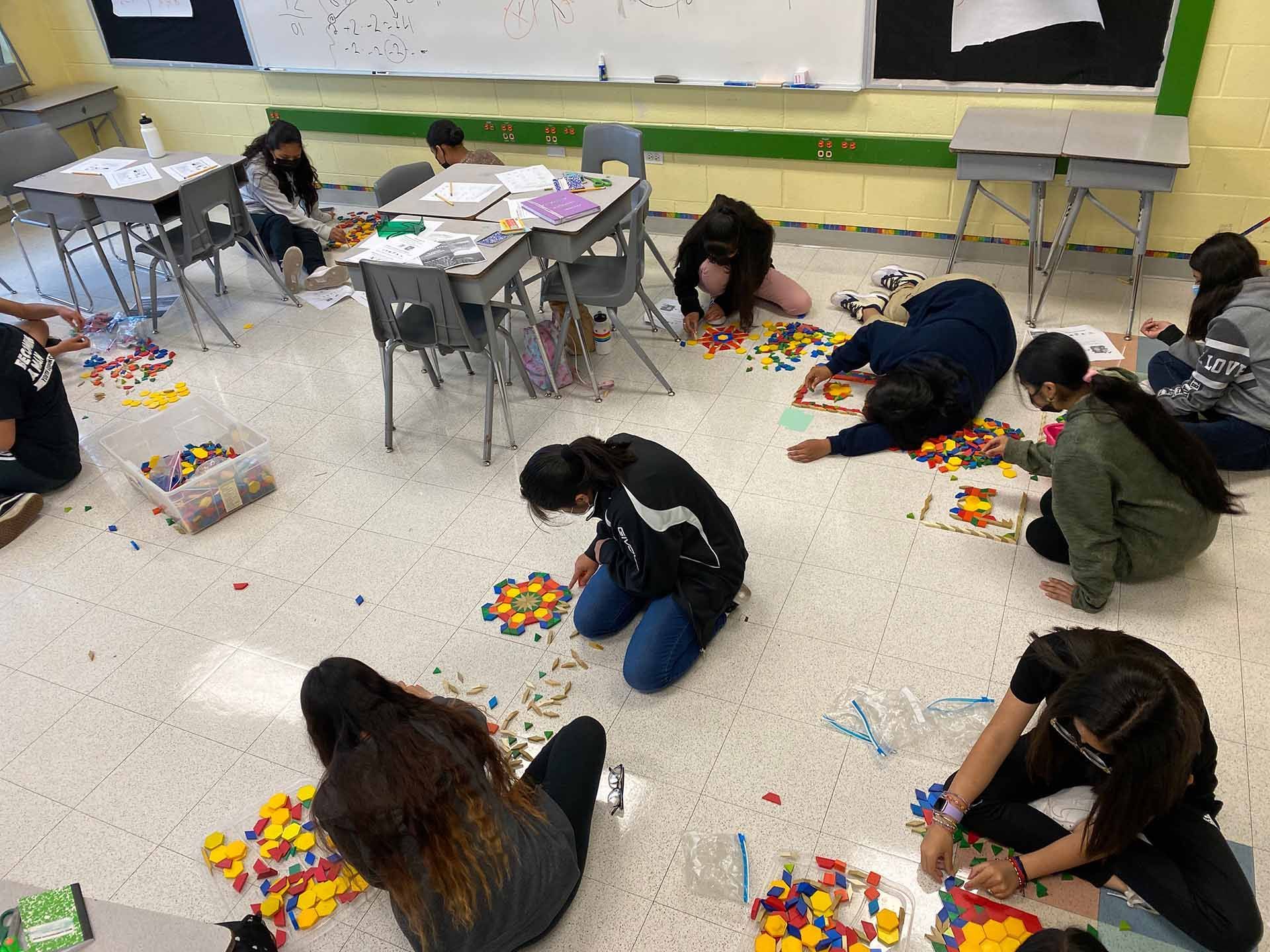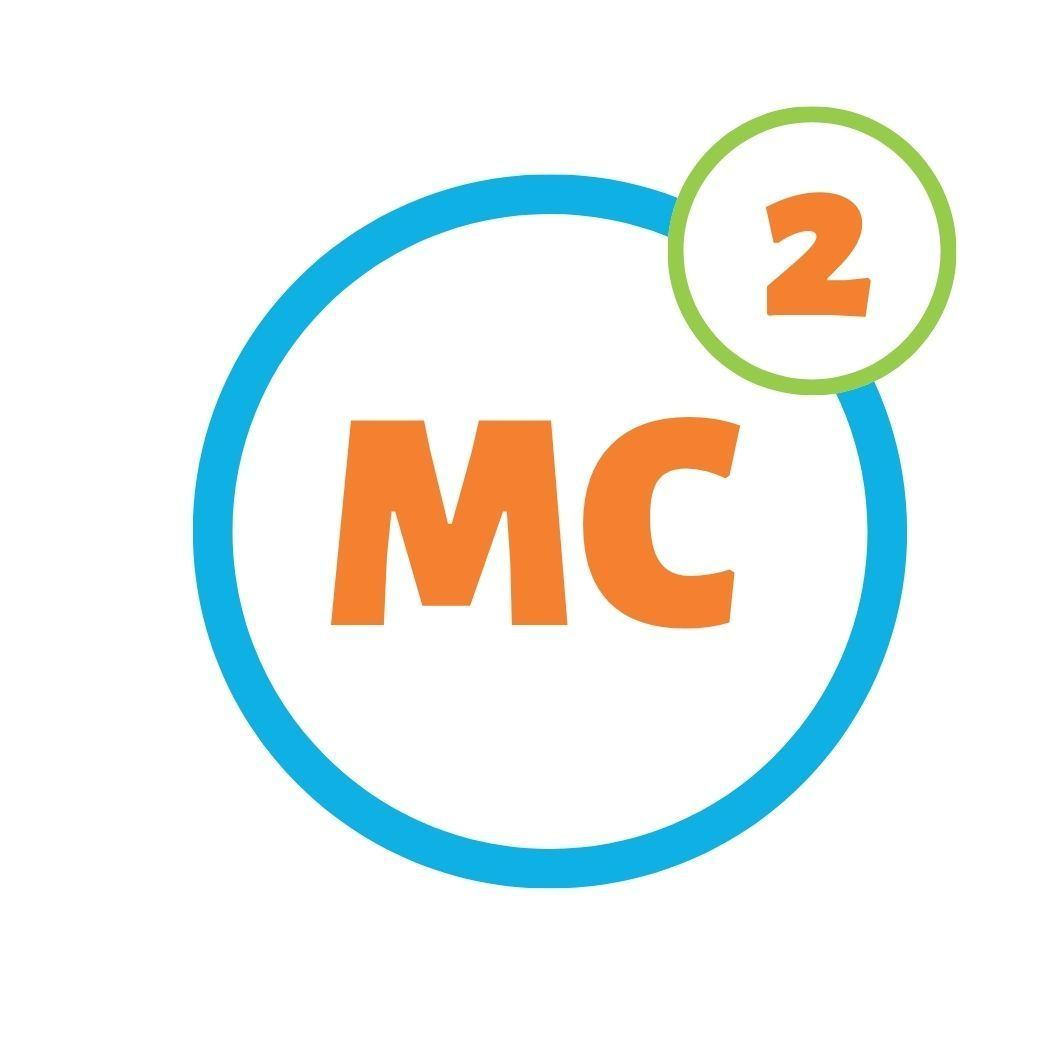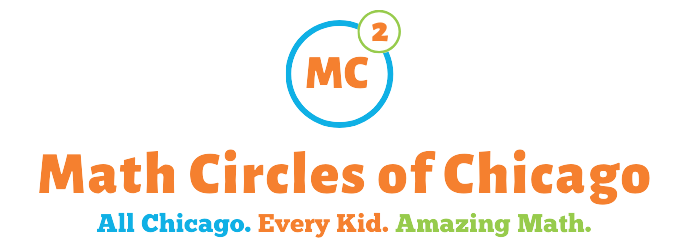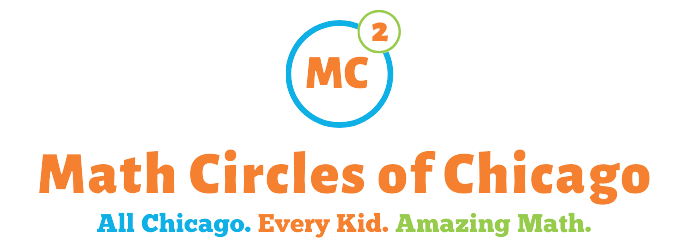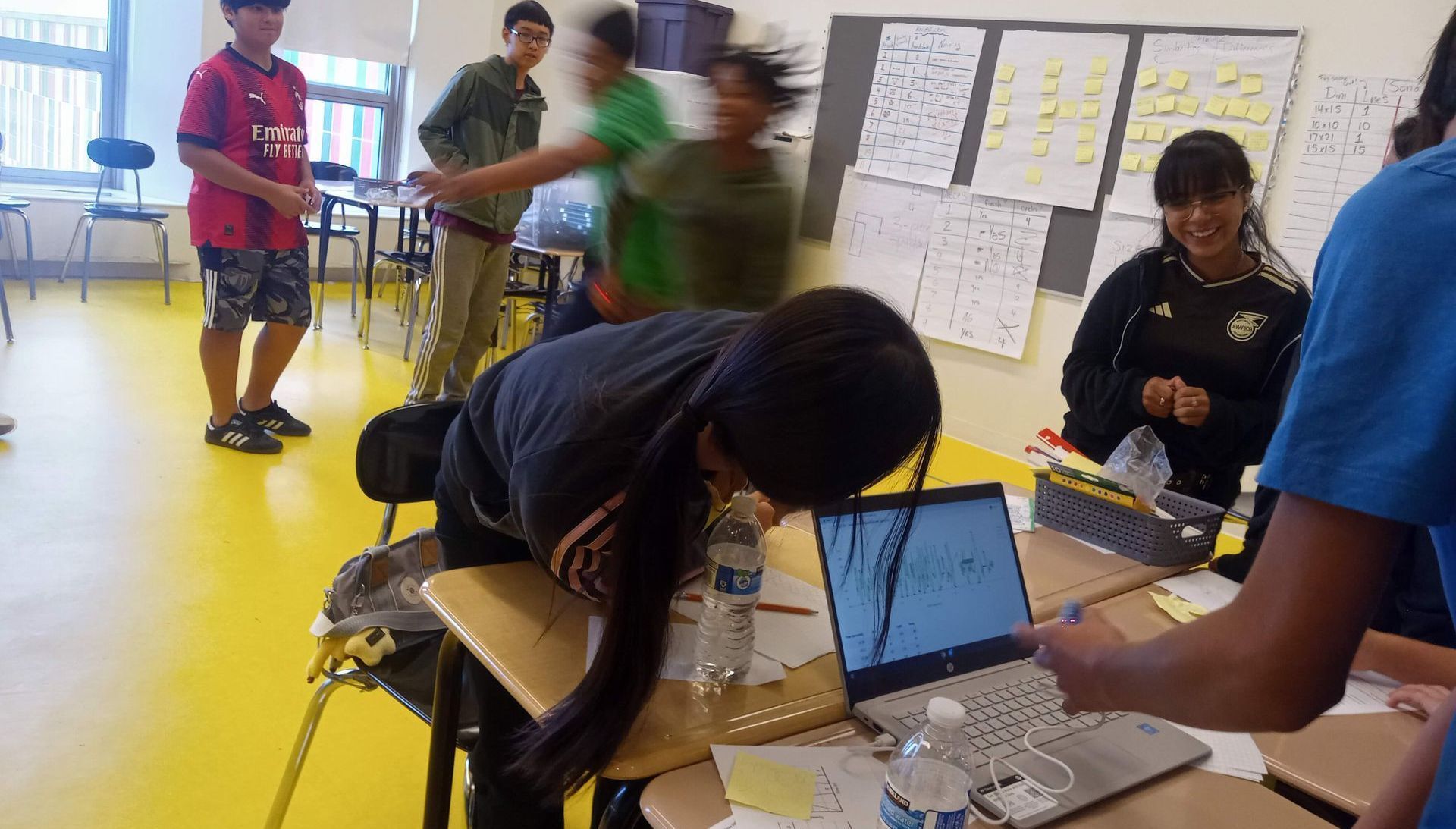In September I visited all eight MC2 sites and met with parents. Whenever I hold these meetings, I do a quick math circle activity to help parents understand what’s happening in our classrooms.
This experience gave me the chance to reflect on what it is we do in math circles. I talk a lot about problem solving, and it occurred to me that it would be a good idea to explain what a problem is. Let’s start with what it isn’t (at least spiritually);
A problem is not a puzzle.
A problem is not an exercise.
And, thus, a problem is in the eye of the beholder.
5 + 7 can be a problem for a first grader, if they apply different strategies to get a result. But at an older age, this kind of arithmetic becomes an exercise–something routine and familiar. The point isn’t that exercises are bad–they just aren’t what we do in math circles.
Puzzles can be non-routine, but many puzzles are non-routine to an extreme. They have an answer, but the discovery of that answer often doesn’t transfer to other contexts. This can make puzzles annoying, because the pay off in solving a puzzle sometimes falls flat, like a bad trick (here’s an old post about my favorite annoying puzzle ).
A problem has the best qualities of both puzzles and exercises. They are non-routine. There is a cognitive demand in the unfamiliar. You might give up–hence it’s nice to attempt problems in a safe, fun space like a math circle that promotes persistence. And problem solutions aren’t dead ends–they connect. They may equip you to solve other problems–in fact, when you succeed in solving a problem, new problems suggest themselves. If a problem is about 5 x 5 array of squares, can you solve it for 10 x 10 array? n x n? Three dimensionally? What if the squares were triangles?
In math circles, we sometimes use puzzles to hook students at the outset of a session, but generally they are used only as a path to engage in the session’s main problem (or, perhaps, better to say ‘problem space’.) And we largely leave exercises to the standard school classroom.
As an organization we’re happy to say we have a lot of problems.


